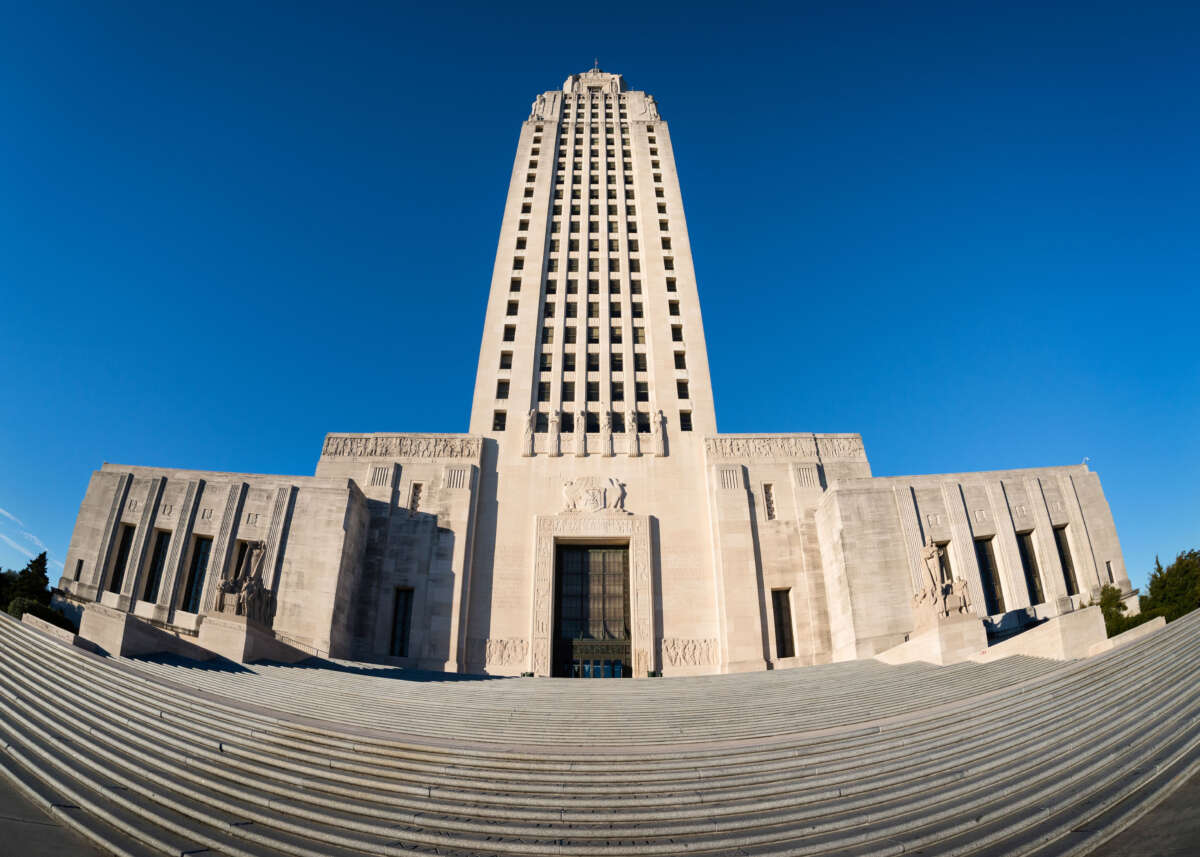Did you know that Truthout is a nonprofit and independently funded by readers like you? If you value what we do, please support our work with a donation.
Five transgender minors and their families filed a lawsuit against state officials in Louisiana on Monday, alleging that a recently enacted law banning gender-affirming care was in violation of the state constitution’s right to privacy and other protections.
Former Gov. John Bel Edwards, a Democrat, vetoed Act 466 last year. However, the Republican-led state legislature overrode Edwards’s veto, and the law, which bans hormone treatments, puberty blockers, surgery and other forms of gender-affirming care for transgender youth in Louisiana, went into effect on January 1.
Seeking to block enforcement of the law, the families filed a lawsuit in the Louisiana state court system. They are being represented by Lambda Legal, an LGBTQ legal rights organization, as well as the Center for Health Law & Policy Innovation at Harvard Law School and Louisiana-based law firm Schonekas, Evans, McGoey & McEachin.
Medical organizations have long noted that gender-affirming treatment can be greatly beneficial for trans youth. A study published in September, for example, showcased that symptoms of suicide ideation and depression among trans people decreased by half when participants were given gender-affirming treatment sooner rather than later. And a study published in early 2023 found that life satisfaction among trans people ages 12-20 increased after two years of gender-affirming treatment, while symptoms of anxiety, depression and suicide ideation decreased.
Within the lawsuit, litigants in the case described the benefits of the gender-affirming treatment they had received before the ban was implemented.
“This health care has allowed me to be happy, healthy, and my true authentic self, the boy I know I am,” said one of the minors in the case, who is going by the name of Max Moe to protect their identity. “I am terrified of what the health care ban will do and worry about how my mental health might deteriorate.”
The lawsuit from the families alleges that Act 466 violates the Louisiana state constitution’s right to privacy provisions and infringes on their parental rights to make medical decisions for their children.
“The Act’s prohibition on providing evidence-based and medically necessary care for transgender adolescents with gender dysphoria stands directly at odds with transgender adolescents’ right to obtain the medical treatment they need, as recommended by their medical providers and with the support of their parents,” the lawsuit states.
The organizations representing the families condemned the state’s wide-reaching ban on gender-affirming care.
“This Health Care Ban only stands to harm Louisiana’s trans youth and their families,” said Omar Gonzalez-Pagan, counsel and health care strategist for Lambda Legal. “The transgender young people we represent, along with hundreds of other minors in the state, are at risk of losing necessary, life-saving medical care just because Louisiana has singled them out for discriminatory treatment.”
Suzanne Davies, senior clinical fellow at the Center for Health Law and Policy Innovation of Harvard Law School, agreed, saying:
The Health Care Ban prohibits the only safe and effective treatment available for trans youth, putting their health and wellbeing at great risk. By selectively banning such treatments for trans youth, this law deprives Louisiana adolescents of equal access to medically necessary, and often life-saving care that is effective in treating gender dysphoria and addressing other serious health conditions such as depression, anxiety, and even suicidal ideation that can occur when gender dysphoria is left untreated.
According to the Human Rights Campaign (HRC), 22 states in the U.S. have enacted laws or policies that ban gender-affirming care for individuals under the age of 18 within their jurisdictions. Court injunctions currently block bans in Alabama, Arkansas, Florida and Indiana.
As a result of these bans, more than one-third of transgender youth in the U.S. (35.1 percent) live in areas where access to treatment is forbidden.
“By preventing doctors from providing this care, or threatening to take children away from parents who support their child in their transition, these bills prevent transgender youth from accessing medically necessary, safe health care backed by decades of research and supported by every major medical association representing over 1.3 million US doctors,” HRC says on its website.
Media that fights fascism
Truthout is funded almost entirely by readers — that’s why we can speak truth to power and cut against the mainstream narrative. But independent journalists at Truthout face mounting political repression under Trump.
We rely on your support to survive McCarthyist censorship. Please make a tax-deductible one-time or monthly donation.
